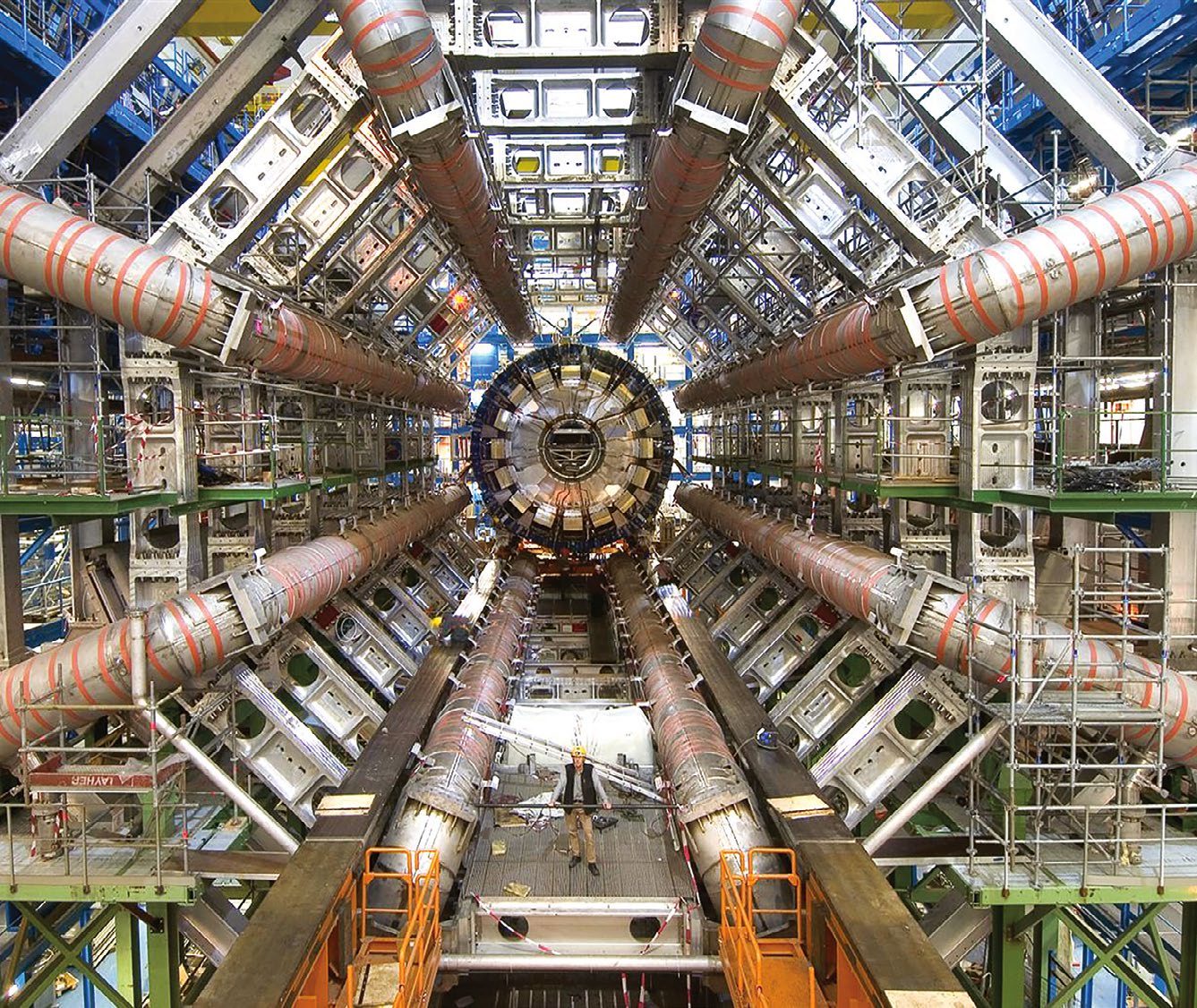
The ATLAS instrument at CERN’s Large Hadron Collider has detected millions of Higgs boson particles
© Getty; CERN
The “most comprehensive studies” of the Higgs boson conducted to date reveal that the particle behaves just as expected and could help unlock some of the greatest mysteries of physics, including the nature of dark matter, scientists say. Two new studies, based on 10,000 trillion proton-on-proton collisions conducted inside the Large Hadron Collider (LHC) during its second run, which ended in 2018, analysed 8 million Higgs boson particles detected by the LHC’s ATLAS and CMS detectors. The studies were published on 4 July, the 10th anniversary of the Higgs boson discovery by the LHC, the world’s largest particle smasher. They show that the particle behaves just as predicted by the Standard Model of particle physics, the all-encompassing theory describing how the basic building blocks of the universe hold together.